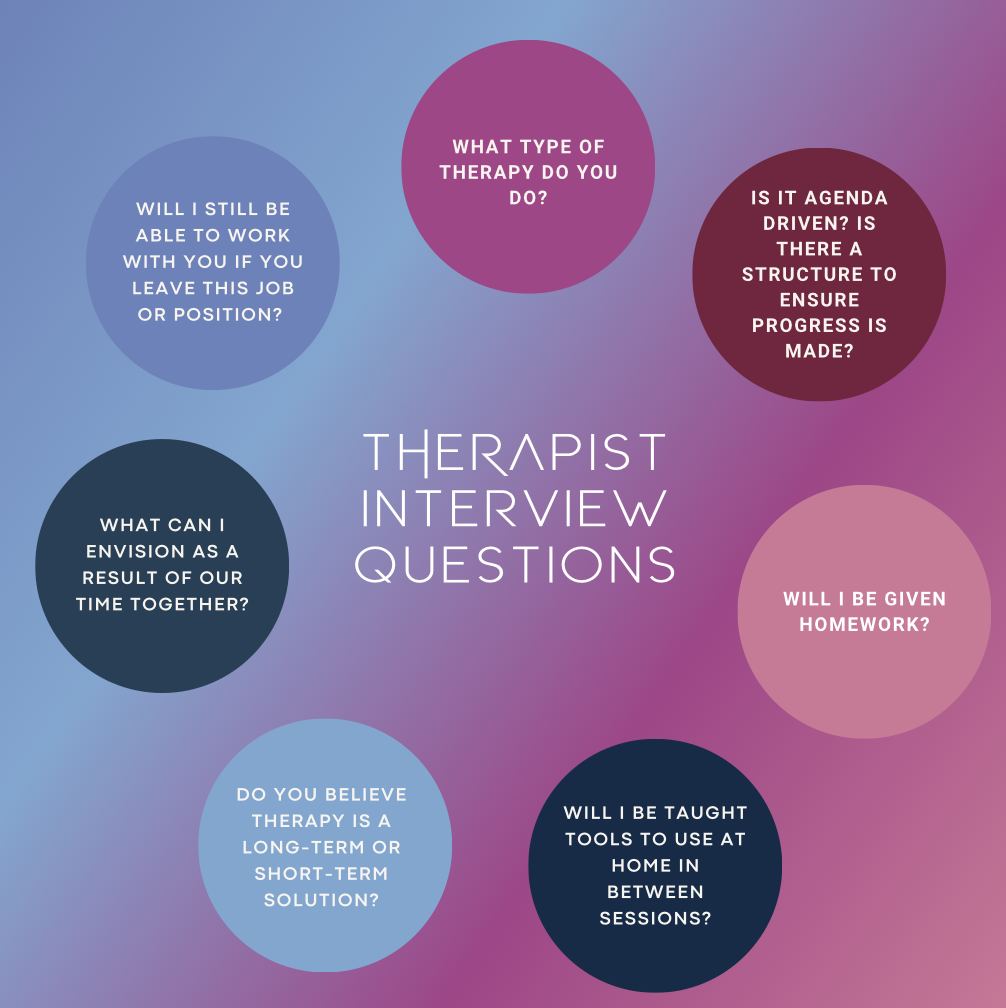Therapy is an energy exchange. Selecting the right therapist is the best way to ensure you can leave sessions feeling:
- Relief or excitement to share and get perspective
- Productive from receiving feedback, reflection and the challenge of assumptions
- Comfortable being authentic without the need to hide or alter your story
Types of Mental Health Professionals
A first step is to identify the type of mental health professional you need.
- Therapist (MA or PhD)- performs talk therapy and usually chooses a field of specialization, such as marriage, family therapy, trauma processing
- Psychologist (PhD)- trained in the assessment, treatment and prevention of behavioral and mental conditions. They have extensive training in research or clinical practice to diagnose neuropsychological disorders and dysfunctions.
- Psychiatrist (MD)- medically trained doctors who can diagnose and treat mental health conditions as well as prescribe medication and perform a comprehensive health exam
- Social Worker (MSW)- works in community settings (hospitals, mental health facilities, schools, transitional living facilities) to people to live healthier, happier lives. They coach individuals and groups through discussion of issues related to communication, empathy, organizational techniques and self-care skills
- Licensed Professional Counselor- provides shorter, goal-oriented support that addresses concrete, specific life challenges. They often specialize in a specific area, such as marriage, addiction, grief or abuse
Identifying a Therapist
If you have insurance, look through your plan’s network for a therapist. Identify the number of sessions you can attend per year. If you develop a strong connection with a professional outside of your network, check whether your insurance will reimburse you for appointment costs.
Another way to identify a professional is through personal referrals. You can ask your doctor, friends or place of work whether they have a recommended resource. You may recognize that you are offered a workplace wellness or employee assistance program.
You can also search for professionals using reliable online databases provided by national mental health organizations, like the American Psychological Association. Be sure to read reviews and identify particular specializations you are looking for.
Interviewing a Therapist
As a patient, you have a responsibility to ensure your chosen therapist is the right fit for you. This choice is not merely a clinical decision, but a deeply personal one as you allow a trusted confidant to help you navigate the complexities of your innermost thoughts and feelings.
“What is necessary is a therapeutic environment in which one can safely express the full strength of one’s rage and the full depth of one’s grief, and in this way regain the strength of one’s identity and the depth of one’s love”
Judith Blackstone, The Subtle Self
Below are some interview questions to help you determine the right fit.

The therapeutic process fosters resilience and psychological flexibility, so that you can build a stronger sense of self and cope with life’s inevitable ups and downs. It should enhance your self-awareness and provide you with valuable coping skills, empowering you to better manage stress, anxiety and other concerns. It’s not necessarily a life-long solution. There should be an end goal to therapy as you develop the skills you need to confront novel challenges and hardships. You can always revisit it in the future, but identifying a vision for your therapeutic work is the best way to ensure you’re making real, sustainable progress.





